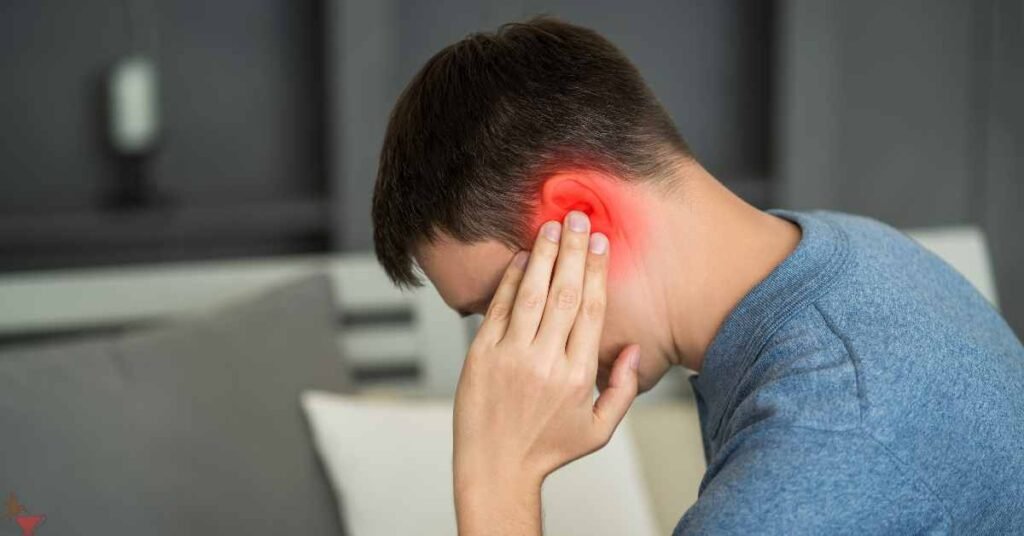You know, sometimes the simplest remedies can offer the most comfort, especially when dealing with complex conditions like relapsing polychondritis.
This rare autoimmune disease causes inflammation of the cartilage, leading to pain and discomfort in areas like the ears, nose, and joints.
While medical treatment is crucial, incorporating anti-inflammatory teas into your routine can provide additional support for cartilage health.
Understanding Relapsing Polychondritis

Relapsing polychondritis (RP) is a chronic disorder characterized by recurrent episodes of inflammation in cartilaginous tissues.
This can affect various parts of the body, including the ears, nose, trachea, and joints. Symptoms often include redness, swelling, and pain in the affected areas, which can lead to long-term damage if not managed effectively.
Conventional treatments focus on reducing inflammation and managing pain, often involving medications like corticosteroids and immunosuppressants.
The Role of Anti-Inflammatory Teas
In addition to conventional treatments, certain herbal teas can offer natural anti-inflammatory benefits.
These teas contain compounds that can help reduce inflammation, support immune function, and provide relief from symptoms.
Here are some of the best teas to consider:
1. Turmeric Tea
Turmeric, with its active compound curcumin, is renowned for its potent anti-inflammatory properties.
Curcumin helps inhibit the activity of inflammatory enzymes and cytokines, providing relief from inflammation. Preparing turmeric tea is simple:
- Add a teaspoon of ground turmeric to a cup of hot water.
- Let it steep for 10 minutes.
- Strain and add honey or lemon for taste.
2. Ginger Tea

Ginger contains gingerol, a compound known for its anti-inflammatory and antioxidant effects. It can help reduce inflammation and pain associated with RP. To make ginger tea:
- Slice fresh ginger root and add it to a pot of boiling water.
- Simmer for 10-15 minutes.
- Strain and add honey or lemon as desired.
3. Green Tea
Green tea is rich in polyphenols, particularly epigallocatechin-3-gallate (EGCG), which has significant anti-inflammatory effects. Regular consumption of green tea can help reduce inflammation and support overall health. Brew a cup by:
- Steeping a teaspoon of loose leaves in hot water for 2-3 minutes.
- Enjoy it plain or with a bit of honey.
4. Chamomile Tea
Chamomile is known for its calming and anti-inflammatory properties. It contains flavonoids that can help reduce inflammation and promote relaxation. To prepare chamomile tea:
- Steep a teaspoon of dried chamomile flowers in hot water for 5-10 minutes.
- Strain and add a touch of honey if desired.
5. Rooibos Tea
Rooibos, also known as red bush tea, is rich in antioxidants and has anti-inflammatory properties. It can help alleviate symptoms of RP by reducing inflammation and oxidative stress. Making rooibos tea involves:
- Steeping a teaspoon of rooibos loose leaves in hot water for 5-7 minutes.
- Enjoy it plain or with milk and honey.
Incorporating Anti-Inflammatory Teas into Your Routine

To get the most benefit from these teas, consider incorporating them into your daily routine.
Start your day with a cup of green tea, enjoy ginger or turmeric tea in the afternoon, and wind down with chamomile or rooibos tea in the evening.
Not only will this help manage inflammation, but it can also promote a sense of well-being and relaxation.
Final Word
While anti-inflammatory teas are not a cure for relapsing polychondritis, they can be a valuable addition to your overall treatment plan.
These natural remedies offer a gentle way to reduce inflammation and support cartilage health.
Always consult with your healthcare provider before adding new treatments to your regimen, ensuring they complement your existing medical plan.
Embracing these herbal teas can provide both comfort and support as you navigate the challenges of relapsing polychondritis.
MEDICAL DISCLAIMER
Itsnevernotteatime.com cannot and does not contain medical/health advice. The medical/health information is provided for general and educational purposes only and is not a substitute for professional advice.




